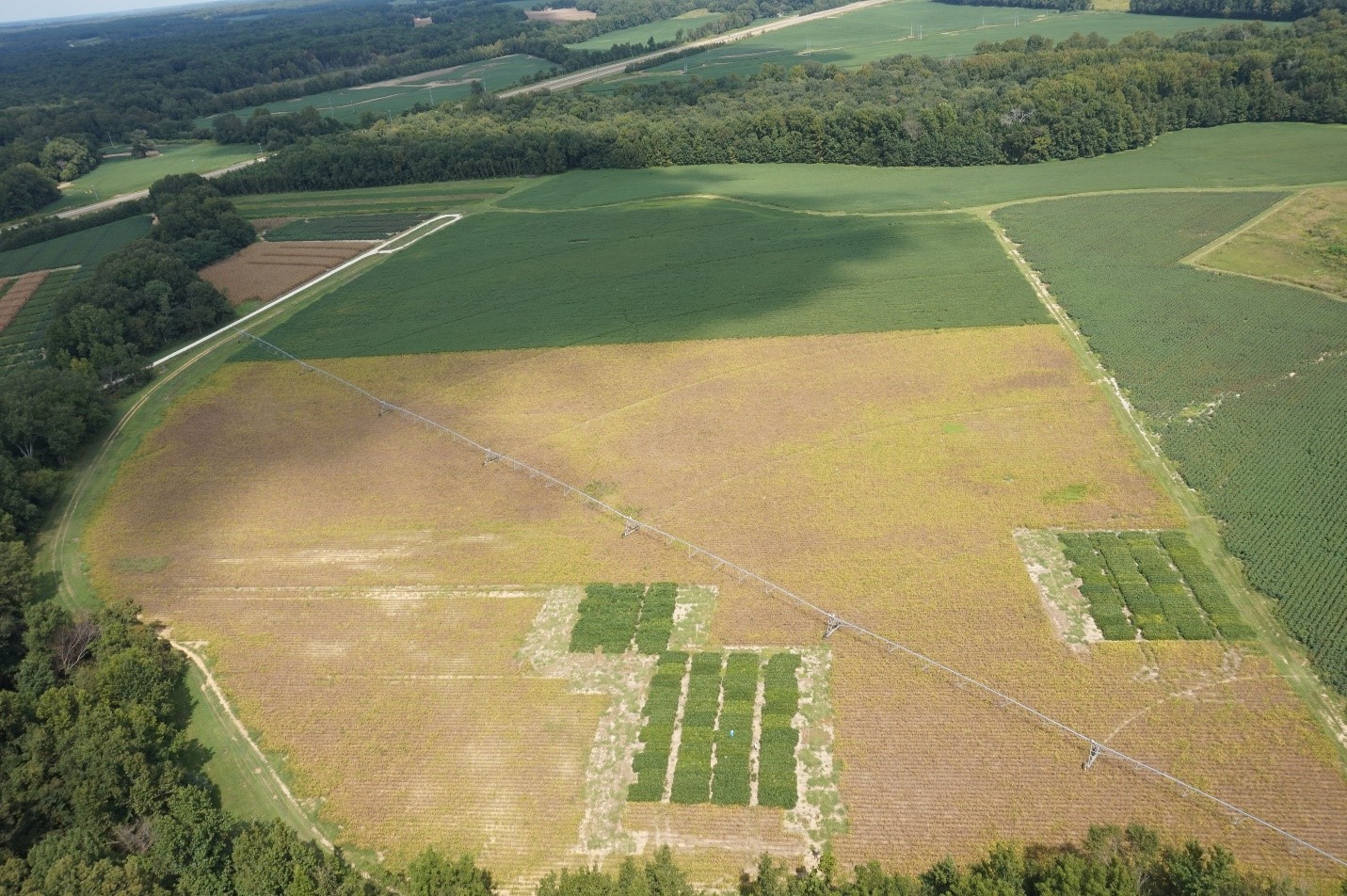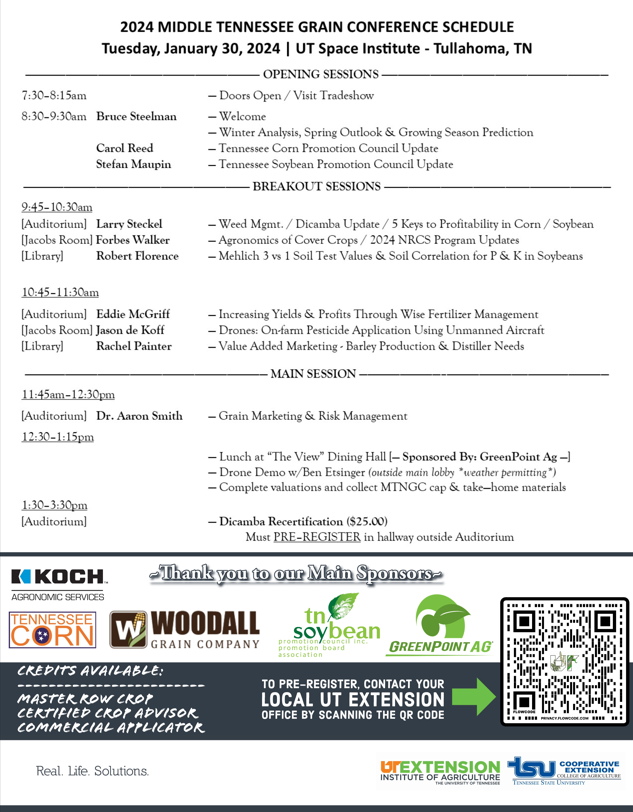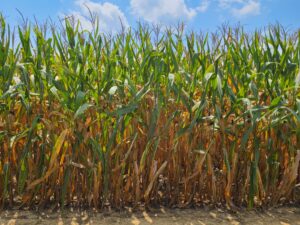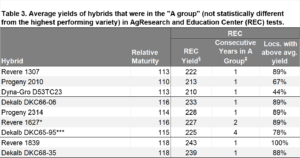 Most of the commercial and state soil testing laboratories in and around Tennessee use and prescribe fertilizer recommendations based on Mehlich 3 soil test extraction method. Most growers may receive soil test results from laboratories that utilizes Mehlich 3 soil test extraction method. However, The University of Tennessee gives fertilizer recommendations based on the Mehlich 1 extractant. This makes it difficult for growers to take advantage of The University of Tennessee fertilizer recommendations. Currently, the Mehlich 1 and 3 conversion equations used in TN were derived from the University of Kentucky, which were based on Kentucky soils (Table 1). Continue reading
Most of the commercial and state soil testing laboratories in and around Tennessee use and prescribe fertilizer recommendations based on Mehlich 3 soil test extraction method. Most growers may receive soil test results from laboratories that utilizes Mehlich 3 soil test extraction method. However, The University of Tennessee gives fertilizer recommendations based on the Mehlich 1 extractant. This makes it difficult for growers to take advantage of The University of Tennessee fertilizer recommendations. Currently, the Mehlich 1 and 3 conversion equations used in TN were derived from the University of Kentucky, which were based on Kentucky soils (Table 1). Continue reading
Category Archives: Corn
2023 County Standardized Trials-Corn
39 Corn Hybrids were evaluated in the 2023 CST program. With the weather we had this summer, our yields are very strong with an overall average across all hybrids and locations over 210 bu/ac. With the many locations/replications in these trials, we can look at performance across many soil types and weather/climate conditions that you can use to help select high yielding, consistent hybrids to bring to your farm. Contact your local county agent for more details or if you need a print out of this data.
These CST plots are large strip trials located ‘on-farm’ with a minimum of 300 feet in length. Inputs and management decisions are on a by location basis and determined by the cooperating producers. Three relative maturity groups divide the trials, Early Corn will be 113 day and earlier, Medium Corn will be 114-116 day, and Full Corn is 117 day plus. Thank you to everyone involved in the CST program for your support and contributions: County Agents, UT Extension/Research, Growers, Industry, Retail.
Below are the results for our 3 RM groups. Click on the table to open a PDF of these tables. These results can also be accessed on https://search.utcrops.com/

2023 Corn Grain OVT Prelim
Prelim results from the 2023 TN corn grain hybrid OVT are now available as an excel file 2023 Corn Grain Tables. Thirty-three hybrids were evaluated in small plot replicated trials (REC) at 9 sites. The CST trial data is still being finalized but should be posted within the next week and will be included in the final combined report to be posted here and on search.utcrops.com.
Irrigation Termination Decisions for Corn and Soybean
| As we approach the end of July, much of our corn and some of our soybean acres are in the latter portion of their respective reproductive growth stages. As we progress toward physiological maturity, lets revisit irrigation termination decisions for these two crops. |
Fungicide considerations in corn
Little to no disease has been observed in Tennessee so far and even to our south. Whether a fungicide in corn will pay off depends on if disease will be a PEST and rob yield, as well as the economics behind it (i.e. corn price and application costs). Continue reading
Irrigation timing: Corn & soybean
 Photo credit: University of Tennessee Institute of Agriculture (UTIA), Shekoofa’s lab
Photo credit: University of Tennessee Institute of Agriculture (UTIA), Shekoofa’s lab
Irrigation timing: Corn & soybean
As we head into the second week of June, many growers are understandably concerned about potential yield loss due to drought stress. In this blog post our Extension Corn and Soybean Specialist, Dr. Jake McNeal and I have discussed irrigation strategies for both corn and soybean.
Understanding the relationship between crops and their environment is critical for effective irrigation management. Crop water use and demand varies as a function of growth stage and weather conditions. Furthermore, the capacity of a soil to hold and deliver water to plant roots (soil water–holding capacity) varies widely across different soil textures.
Also, we want to emphasis that there is a distinct physiological difference between heat stress and drought stress, especially in corn. Even in the presence of adequate soil water, corn leaves will often curl inward from the leaf margins during extended periods of high temperatures. Many refer to this as “pineapple leaves” or a “pineapple crop”. Furthermore, it is very difficult to discern between the two without utilizing a soil water sensor in your crop.
Corn-The Mid-South region of the U.S. receives sufficient annual rainfall to grow corn without irrigation in most years. However, irrigation is common in corn production because rainfall is not always distributed adequately throughout the growing season for the crop, especially during critical reproductive periods. Therefore, not all rainfall can be considered effective. Continue reading









